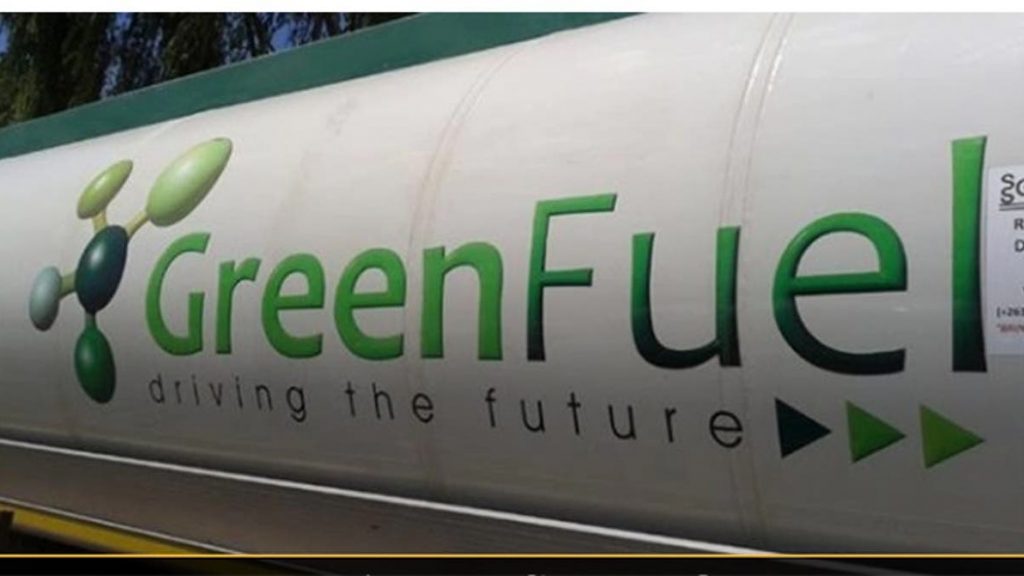China Classification Society (CCS) has released 87 green-ship-related guidelines and provided classification services for over 30 methanol or ammonia fueled vessels.
Korean Register (KR) is currently developing a 4-stroke ammonia-fueled engine with HD KSOE and STX Engine, with a dual focus on engine performance and crew safety. At the research facility, the risks are being comprehensively addressed. A double barrier is installed in the laboratory where the from direct exposure to ammonia leaks. KR’s research is informing its own guidance as well as that of IACS and the IMO.
CCS is a partner in the development of a green corridor for the container shipping route between the Ports of Los Angeles, Long Beach and Shanghai. Carrier partners include CMA CGM, COSCO Shipping Lines, Maersk, and ONE, and they will begin deploying reduced or zero lifecycle carbon capable ships on the corridor by 2025.
RINA is partnering on the development of a concept for a 209,000dwt Newcastlemax bulk carrier with an LNG fuel system involving pre-combustion carbon removal and hydrogen production. The design includes the capture, onboard storage and offloading of liquefied CO2 or solid carbon and is destined for the Pilbara to Asia dry-bulk trade corridor. RINA says the concept provides a credible line-of-sight pathway to zero emissions for the application of LNG as a marine fuel.Carbon capture faces similar barriers to commercialization as new fuels. Lloyd’s Register (LR) collaborated on a report which identified that while the technologies required for offloading onboard captured CO2 exist, a limited number of ports possess the infrastructure. They primarily handle food-grade CO2, and the higher purity standards required for that limit their interoperability to handle onboard captured CO2.
Class-led collaborations are tackling the practical issues that are hindering change. LR, for example, has established a Maritime Decarbonization Hub with shipowners in Athens which aims to remove technical, investment and community barriers to the uptake of solutions for the existing fleet, and ClassNK provides transition support services to help clients reduce GHG emissions. This includes proposing optimal strategies, providing the latest information on alternative fuels, cost estimations including regulatory compliance, fuel supply forecasts and ordering status for alternative fuel ships.
DNV and Shandong Shipping Tanker Company have launched a Joint Innovation Studio to promote digital and sustainability projects. DNV is also leading long-term projects such as the Green Shipping Program and the Maritime Battery Forum. The Maritime Technologies Forum also includes ABS, LR and ClassNK. There are different levels of cooperation at work, says Jason Stefanatos, Global Decarbonization Director at DNV.
Bureau Veritas has created a Future Shipping Team (FST) which brings together over 250 experts from across the group. The team’s efforts are designed to expand shipping’s sustainability journey to encompass the broader supply chain dynamics that will be instrumental in making any green fuel, energy or technology available at the scale needed, says FST head, Benjamin Lechaptois.
Tags: Bureau Veritas, CCS, classification societies, DNV, KR, Ne fuels



Recent Posts
Scandlines Nears Delivery of Zero Emissions Ferry Following Successful Sea Trials
India faces emission roadblocks with rising net-zero demands
Green Energy Resources invests in two electric Liebherr LHM 550
NYK Launches Continuous Use of Bio LNG Fuel on Car Carriers to Advance Decarbonization Goals
Yang Ming Expands Fleet with Methanol and LNG Dual-Fuel Vessels Under Fleet Optimization Plan
ClassNK Advocates Speed Gap Monitoring to Optimize Fuel Efficiency in Heavy Weather
Wärtsilä’s retrofit package for the Corsica Linea ferry Pascal Paoli has resulted in fuel savings of up to 22 percent Corsica Linea
COSCO Shipping Names Second Methanol Dual-Fuel Containership in Yangzhou